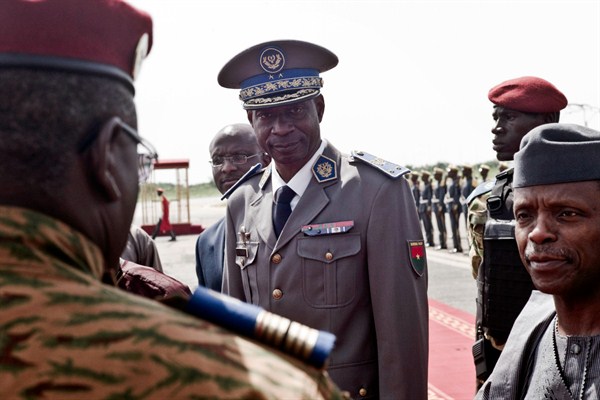A court in Burkina Faso was due to resume hearings this morning in a trial against the alleged perpetrators of a short-lived coup nearly three years ago that came close to derailing the West African nation’s transition away from quasi-authoritarian rule.
In September 2015, members of the country’s presidential guard stormed a Cabinet meeting in the capital, Ouagadougou, taking the country’s acting president, Michel Kafando, hostage along with the acting prime minister and several other high-ranking officials. Kafando’s transitional government had been installed after a popular uprising in October 2014 forced the resignation of Blaise Compaore, who served as president for nearly three decades and, in the months before his downfall, was angling to extend his tenure further.
The presidential guard, commanded by Gen. Gilbert Diendere, remained loyal to Compaore, and the 2015 coup represented a last, desperate attempt by the Compaore-era leadership to cling to power. It ultimately foundered in the face of large-scale protests similar to those that toppled Compaore in the first place. Two months later, Burkina Faso held new elections, and Roch Marc Christian Kabore was sworn in as president in late December 2015.

